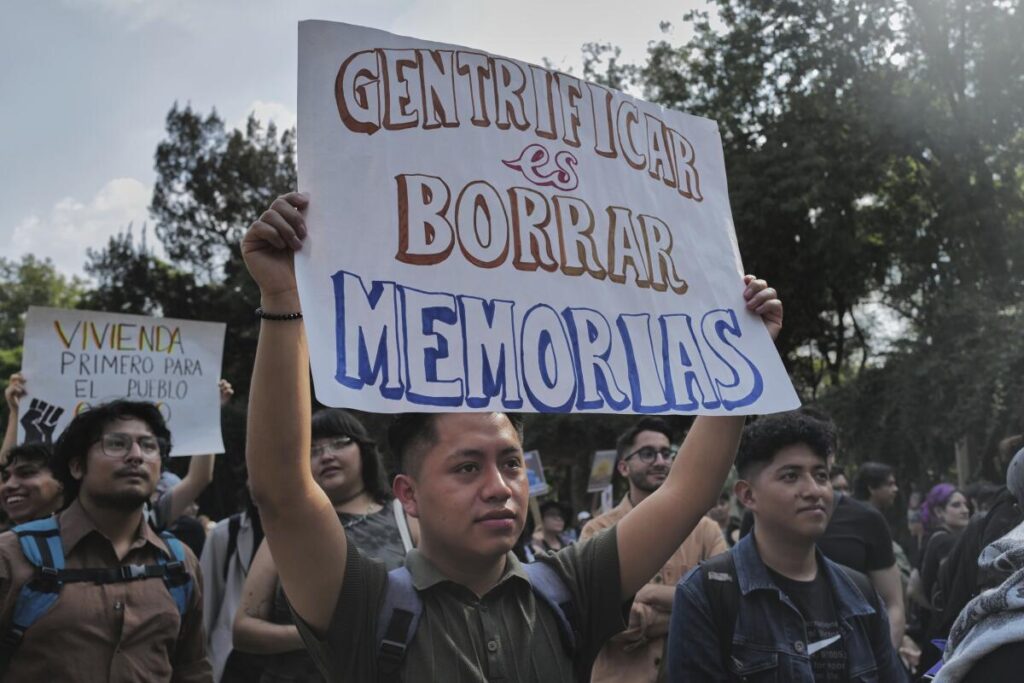
Mexico has long served as a refuge for African Americans seeking reprieve from the relentless systemic oppression of the United States. For generations, Black Americans have looked beyond U.S. borders in search of safety, dignity, and the freedom to live without the constant threat to their livelihood. While racism is a global issue, the unique brand of structural violence in the U.S. continues to push people out. Many are now finding new homes in Latin America, across Asia, and throughout the African continent.
Before we get into the current situation in Mexico, it’s important to offer a brief historical context. During the era of legalized enslavement in the United States, Mexico became a refuge for enslaved Africans seeking freedom. The country’s decision to abolish slavery in 1865 made it a beacon of hope and resistance, cementing a long legacy of solidarity between Black people from the U.S. and Mexican communities. While this history doesn’t erase the complexities and tensions that exist today, it’s essential to recognize that both communities have supported one another in meaningful ways over time. Multiple truths can coexist, and understanding this shared history helps frame the present with deeper nuance.

Over the past weekend, protests in Mexico City drew attention to the city’s mounting gentrification crisis. The grievances voiced by Mexican citizens are valid and necessary. The top 1% of the country, along with an influx of digital nomads, have contributed to the rising cost of living—skyrocketing rent, inflated grocery prices, and the overall economic shift that favors outsiders over locals. Within this conversation, it’s important to focus on a specific, often overlooked group: African-Americans who have made Mexico City their home.
Holding a U.S. passport and earning in U.S. dollars absolutely confer privileges. However, it is critical to differentiate the lived realities of Black Americans from those of white Americans. The global treatment of Black people—rooted in anti-Blackness—does not vanish upon arrival in a new country. The misdirected resentment aimed at Black Americans in Mexico is often underpinned by this very bias. It is a complex, multilayered issue, deserving of nuance and honesty.
As someone currently living in Mexico City, I speak from lived experience. I am going through the proper immigration processes, renting from Mexican landlords, participating in the local economy, and speaking Spanish, my first language. I strive not only to integrate into the cultural fabric of the city but to give back and show up in meaningful ways. Yet, even with that intention and effort, Black people I know have encountered this misdirected hostility based solely on my identity as an African-American.
We must hold space for the reality that travelers and expats regardless of race may carry with them a U.S.-centric entitlement, but we cannot ignore the efforts of those who are actively learning, adapting, and contributing to their adopted communities. Multiple truths can coexist: there can be African-Americans perpetuating economic privilege, and there can be African-Americans resisting extraction and committing to solidarity.
It is equally true that those primarily responsible for driving up prices and displacing locals are not Black Americans, but the same demographics that benefit from white supremacy globally. The systems that force Black Americans out of their homeland are the same ones enabling white digital nomads to settle in places like Mexico, Puerto Rico, Dominican Republic, Costa Rica, even Brazil and African countries—often without giving back, learning the language, or respecting the culture.
This is not just about Mexico. This is about a global pattern of displacement and colonization, masked as modern mobility and remote work freedom. It is about governments that have made it far too easy for outsiders to settle, invest, and capitalize, while locals are left to navigate skyrocketing costs and dwindling opportunities. In Mexico, people earning in pesos cannot keep up with those earning in dollars, and this is by design. It’s a model we’ve seen repeated across the globe.
Gentrification is violence. And this violence is sanctioned by the state and driven by the global elite. In places like Puerto Rico and Hawaii, entire communities are being pushed out. In Mexico, digital nomadism has become a new face of modern-day colonialism. While the term “gringo” has often been used to refer to white Americans and Europeans, the frustration that many locals feel must be aimed at the structures of power, not misdirected toward BIPOC communities who are themselves escaping systemic harm.
It is time for a deeper, more honest conversation about privilege, displacement, solidarity, and accountability. And it must begin with truth-telling—not just about who we are, but about the systems that shape the ways we move, live, and relate across borders.
Community.

